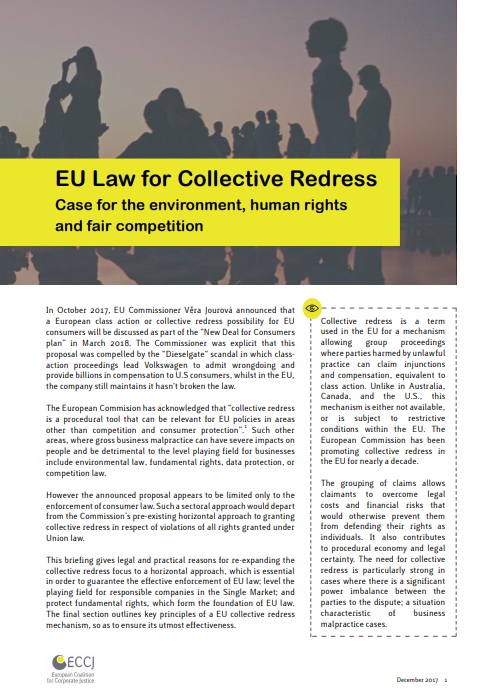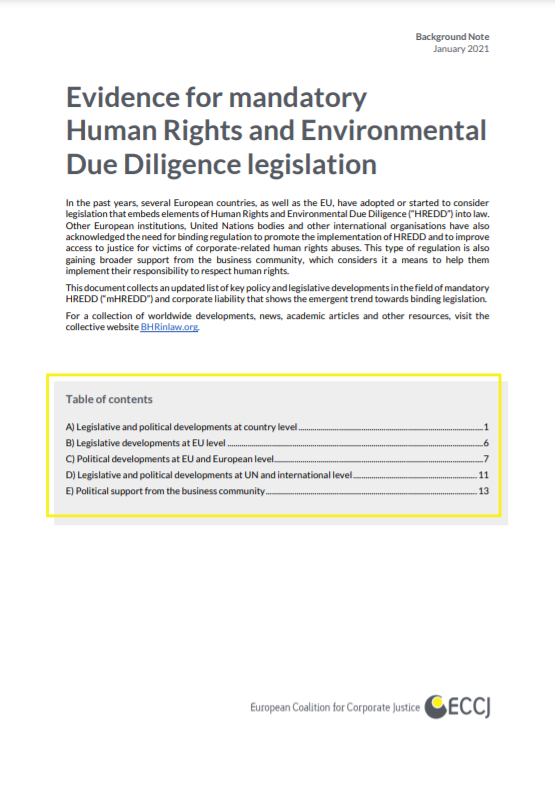This website uses cookies so that we can provide you with the best user experience possible. Cookie information is stored in your browser and performs functions such as recognising you when you return to our website and helping our team to understand which sections of the website you find most interesting and useful.

Collective Redress (otherwise known as class-action) is a crucial access to justice tool for all victims of mass corporate harm situations, as it allows them to bring their claims together against a common defendant.
This significantly reduces major access to justice barriers typically faced by individuals, in particular the prohibitively high costs associated with litigating against well-resourced corporations. Collective redress should be available for all situations where mass violations of human and fundamental rights has occured, including those associated with the environment, labour, anti-discrimination, privacy; as well as consumer and competition matters.
ECCJ is currently advocating for collective redress across the EU, and in particular for an EU directive which grants those who have suffered corproate harm the right to bring their claims together as a means to obtaining effective remedy.
So far, the general reliance on voluntary and incentive-driven measures to promote business respect for human rights by European Union (EU) decision-makers has proven insufficient.












